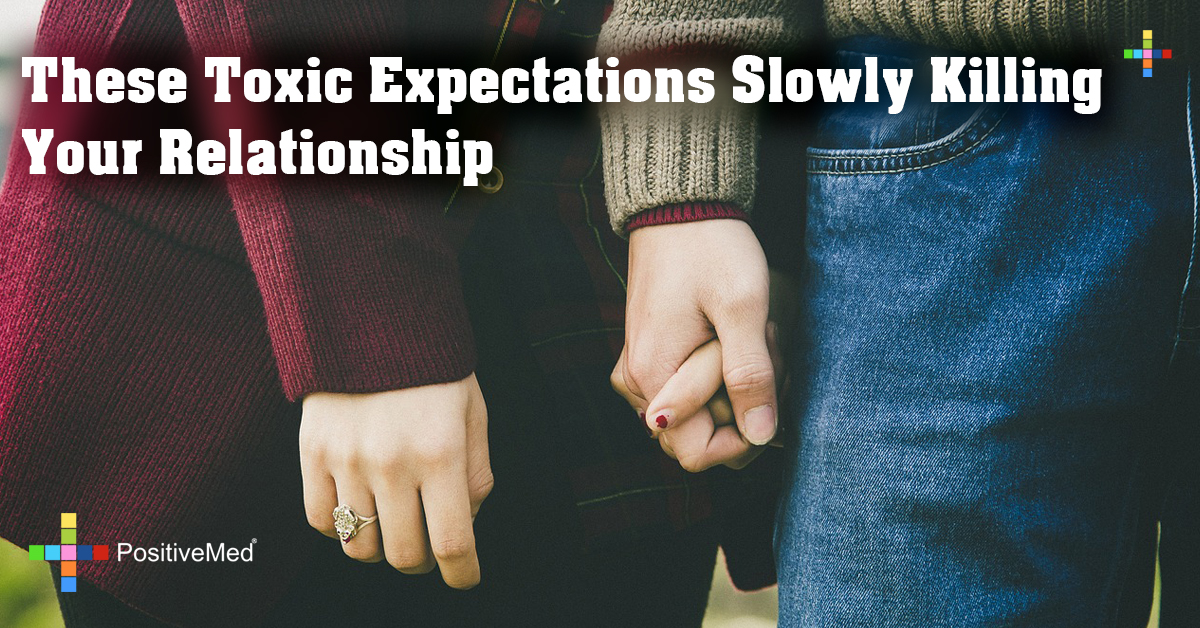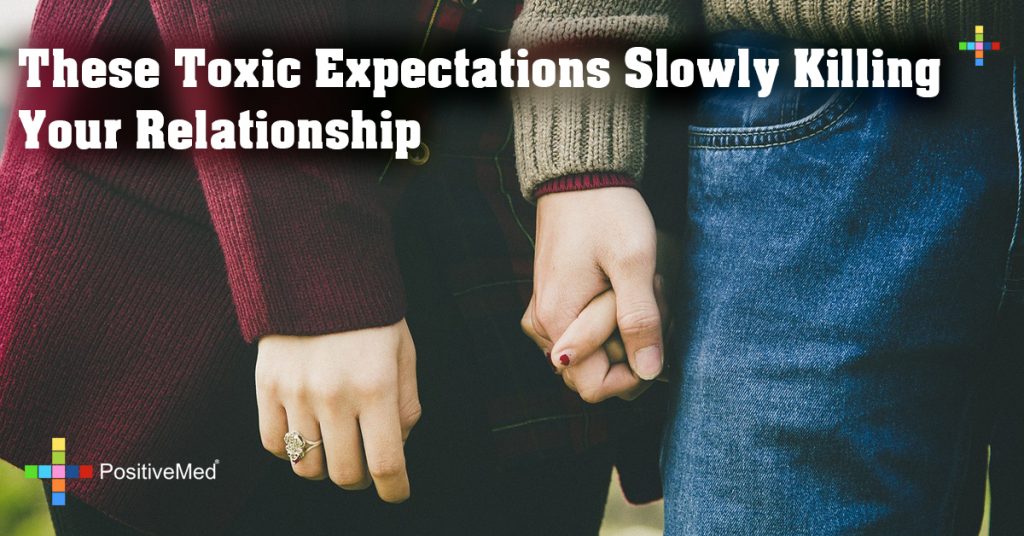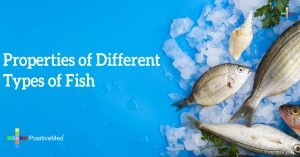
These Toxic Expectations Slowly Killing Your Relationship
Each of us has a unique dream about an ideal relationship and life with a person dearly loved. We desire a special person to share our family and future hopes.
Naturally, we’re not considering deliberately sabotaging our wonderful relationship, are we? Of course not!
Yet, we could be attaching an unhappy ending to a great love story by wrong expectations.
So what’s wrong with having expectations for the love of my life?
Nothing. But let’s use this opportunity to get personal pique out of the way and think objectively about ourselves. We can begin with some of our favorite misconceptions.
She doesn’t understand me.Understanding is a key component of all good relationships. The problem is, the word ‘me’ gets in the way of the ‘understanding’. Communication sours when one partner feels misunderstood. Usually, the reaction is negative and begins a cycle of relationship malfunction. Have you ever said these words? “If my partner loves me, he/she will understand what I want.”
Hmmm. Love miraculously bestows mind-reading powers.What drives understanding? Understanding comes through communication. Theravive’s article title, Building Communication Skills in Your Marriage says it all. Communication is a skill that not all of us may have developed. Thousands of books have been written about communication, but few of us seem to have actually read them. We all wish to be understood. The problems happen when we won’t attempt to understand the other person.
RELATED ARTICLE: 6 Kinda Normal Habits That Actually Toxic For Your Relationship
To be honest, communication and understanding so that each person feels validated is hard work, as our breakups and divorce rates indicate. Adequately saying what you mean without threatening the other person is very necessary. Letting your anger rule is like carrying a time bomb in your purse. Anything can set it off and blow a hole in your relationship. Let’s look at it this way: For all the times that you felt misunderstood, how often did you attempt to understand the other person during that time? A lot of fighting would end with this new component, and a lot of waiting for the next explosion.
Love shouldn’t be work.An interesting statement. Here’s a question for you. Can you think of any advanced and rewarding skill that doesn’t take extremely close dedication? I want to be a superb violinist. Will I become that if I practice just when I feel like it? I don’t need to tell you the answer to that one. Developing a superb relationship with a person you wish to spend your entire life with is far more important than learning a musical skill, isn’t it? Love should not feel tough, taxing or defensive. But Candace Davis, a teacher and blogger writing for The Huffington Post has it right when it says the Beatles were wrong. Love is not all you need.
You may need outside help. Don’t be too sure that you don’t. If the relationship is worth saving, it’s worth getting help from professionals who know a great deal about love and relationships.
You may need to learn to love yourself. Love is not two halves of a watermelon making a seamless whole. You are important and different than your partner. You have something unique to bring to the relationship. You need to be a whole person to begin the process.
Sometimes raw release of emotional pain will actually cause love to grow. For all your efforts, there will be pain. Getting through the tough stuff can make you stronger, better people.
I thought love was supposed to be unconditional.Have you ever worked in a business that had no conditions for you to meet? Of course, a love relationship is different than employment. Perhaps it could be said this way: Unconditional love does not mean unconditional approval. Unconditional love is good for babies, but not grownups.
The air castle that your love will adore you, flaws and all, and make no demands upon you is not part of grown-up reality. Tina B. Tessina’s article, Creating Unconditional Love, makes a serious point about unrealistic expectations.
She says, “If these hopes go unexamined and untempered by the realization that they are unrealistic, and your partner does inevitably get annoyed or upset, you might overreact with hurt, anger, or despair.”
We need to understand that giving the relationship some space or working to improve certain aspects of ourselves can reduce our negative reactions to constructive criticism or annoyance.
A relationship based upon realistic awareness and expectations for yourself and your partner, as well as the love and excitement you already possess, is a great recipe for success!








